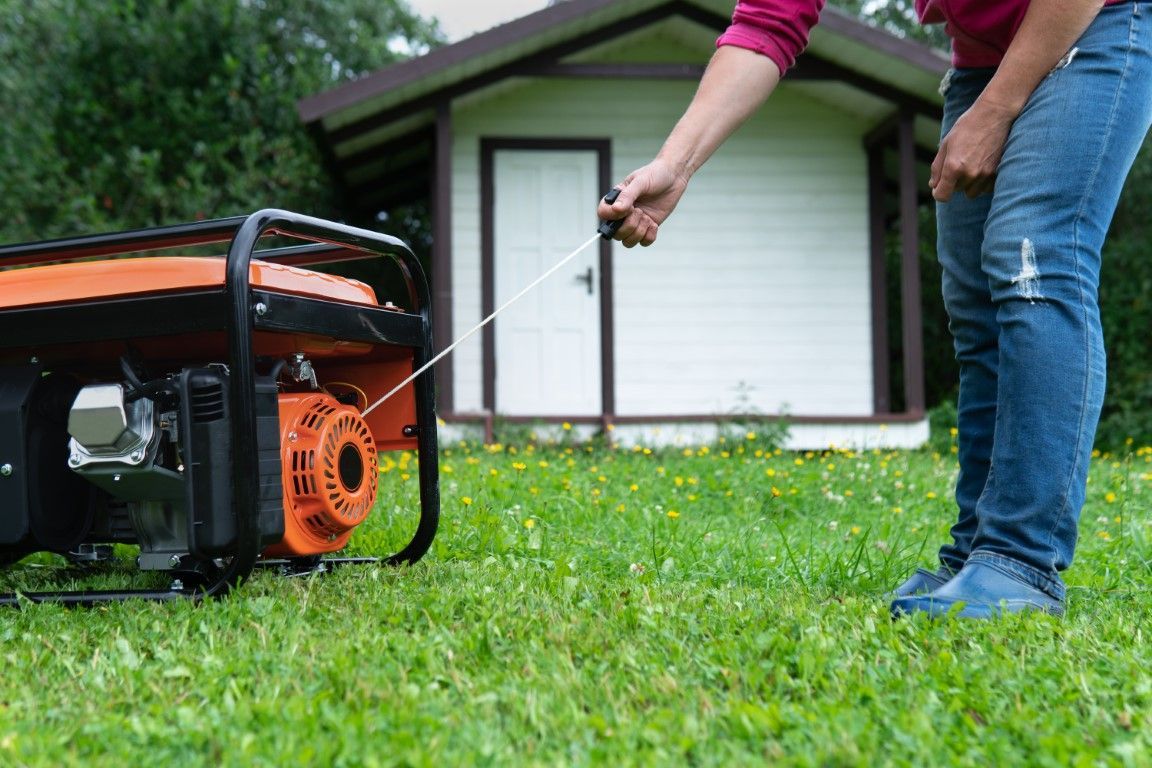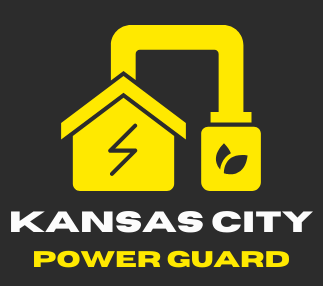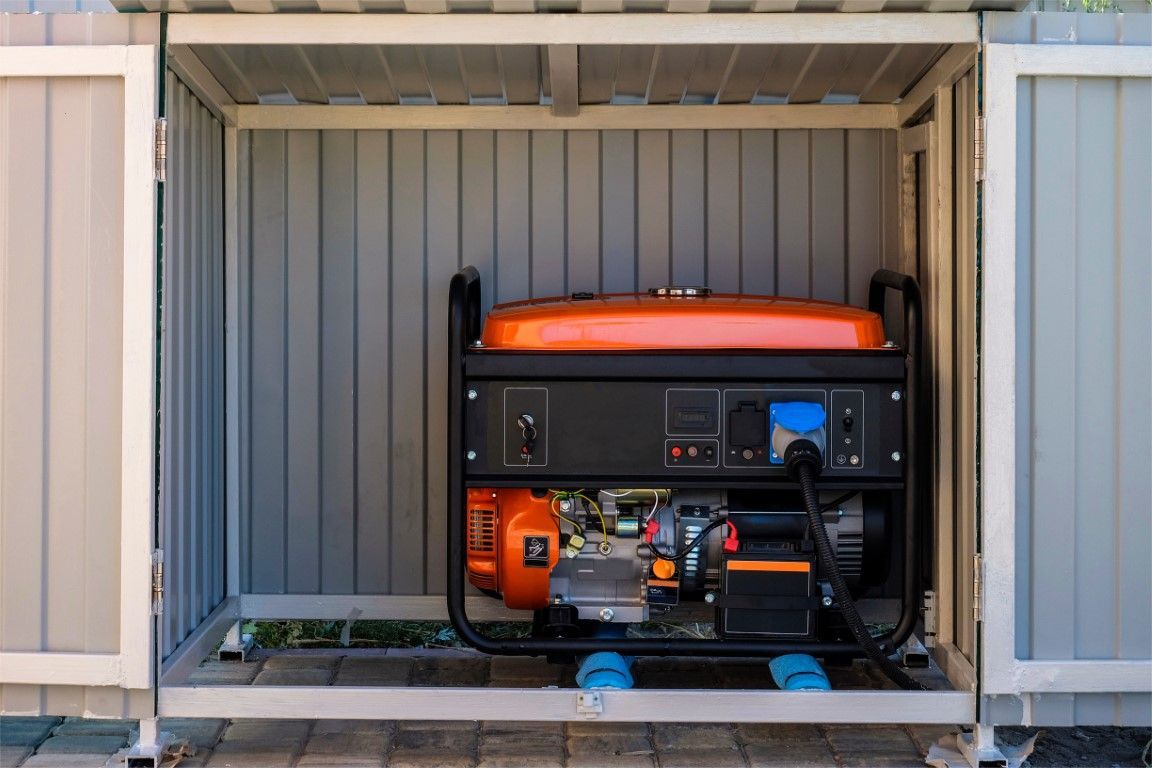Portable Generators in Kansas City MO
A portable generator is a compact and versatile device designed to provide electricity in situations where your usual power source is unavailable. Unlike larger, stationary generators that are fixed in place, portable generators are built to be moved around easily. This makes them extremely useful in a variety of scenarios where temporary power is needed.
For instance, portable generators are ideal for outdoor activities such as camping and RV trips. When you’re away from home, you might want to power essential items like lights, a small refrigerator, or even electronic devices. Portable generators can ensure that you have the energy you need to stay comfortable and connected, even in the great outdoors.
Construction sites also benefit from portable generators. Workers often need power for various tools and equipment, especially in areas where there is no access to the main power grid. Portable generators can supply the necessary electricity to run drills, saws, lights, and other machinery, enabling construction work to proceed efficiently and safely.
Portable generators offer several key advantages, primarily revolving around their flexibility and cost-effectiveness.
Flexibility and Mobility
One of the standout features of portable generators is their portability. These devices are designed to be easily transported, allowing you to move them from one location to another with minimal effort. Whether you’re heading to a remote campsite, moving between job sites, or simply shifting the generator from one area of your home to another, their lightweight and compact design make this process straightforward.
This mobility means you can use a portable generator in various situations without the need for permanent installation. You can bring it to a camping trip, use it for a backyard party, or even have it ready for emergencies at home. Its ability to provide power wherever it’s needed adds significant value, making it a versatile tool for both personal and professional use.
Cost-Effectiveness
Another major advantage of portable generators is their affordability compared to larger, stationary models. While stationary generators are often more powerful and designed for long-term use, they also come with a higher price tag and installation costs. Portable generators, on the other hand, are generally much more budget-friendly.

This cost-effectiveness makes them an attractive option for individuals who need temporary or occasional power rather than a permanent setup. If you only require additional electricity for specific events or short-term needs, a portable generator offers a practical and economical solution.
Overall, the combination of portability and affordability makes these generators a valuable investment for a wide range of applications. They provide a convenient way to ensure you have access to power when and where you need it, without the expense and complexity of more permanent power solutions.
Proper Setup and Operation How to Start and Shut Down the Generator Correctly
To get the most out of your portable generator and keep it running safely, it's important to start and shut it down properly. Here’s a simple guide:
Starting the Generator: Begin by placing the generator on a flat, stable surface outdoors, away from any structures or flammable materials. Before starting, check the fuel level and make sure the oil is at the correct level. Open the fuel valve, and if the generator has a choke, set it to the "start" position. Turn on the ignition or start switch, and then pull the starter cord or press the electric start button, depending on the model. Once the engine starts, let it run for a minute or two before connecting any devices.
Shutting Down the Generator:
When you’re done using the generator, unplug all devices connected to it. Let the generator run for a few minutes to cool down and burn off any remaining fuel in the lines. Turn off the generator using the switch or button, then close the fuel valve. Always wait for the engine to stop completely before moving or storing the generator.

Managing Load and Ensuring Balanced Usage
Properly managing the load on your generator ensures that it operates efficiently and avoids overloading. Follow these steps to balance the usage:
Determine Your Power Needs: Before connecting devices, add up the wattage of all the items you plan to use. Ensure that the total wattage does not exceed the generator’s capacity. Most generators have a maximum wattage rating, and exceeding this can damage the generator or the connected devices.
Distribute the Load: If you are running multiple devices, distribute the load evenly across the generator’s outlets. Avoid plugging too many high-wattage appliances into a single outlet, as this can cause overloading. Use power strips with built-in circuit breakers for added safety and convenience.
Monitor the Load: Keep an eye on the generator while it’s running. If you notice any signs of strain, such as unusual noises or a drop in performance, reduce the load immediately to prevent damage.
Troubleshooting Common Issues

Sometimes, generators might not work as expected. Here are some common issues and how to fix them:
Generator Won’t Start: If your generator won’t start, check the fuel level and ensure enough gas. Inspect the oil level and add oil if needed. Ensure that the fuel valve is open and that the choke is set correctly. If the engine still won’t start, check the spark plug and replace it if it’s dirty or worn out.
Generator Runs Roughly: If the generator runs unevenly or stalls, it might be due to a dirty air filter or a clogged fuel line. Clean or replace the air filter and check the fuel line for any blockages. Ensure that the fuel is fresh and not contaminated.
Power Outages or Flickering: If the power supplied by the generator is unstable or flickering, it could be a sign of an overloaded generator or a loose connection. Unplug some devices to reduce the load and check all connections to ensure they are secure.
When to Seek Professional Help
While many minor issues can be fixed independently, some problems may require professional assistance. If you encounter any of the following, it’s best to consult a technician:
Persistent Starting Issues: If the generator repeatedly fails to start despite checking fuel, oil, and spark plugs, a professional can diagnose and repair more complex issues with the engine or electrical system.
Unusual Noises or Smells: If you hear strange noises or smell unusual fumes coming from the generator, stop using it immediately and contact a professional. These could be signs of serious mechanical or electrical problems that need expert attention.
Electrical Failures: If you experience consistent power outages or electrical irregularities, a professional can inspect the generator and its connections to ensure everything is functioning correctly and safely.
By following these usage tips, you can ensure that your portable generator runs smoothly and efficiently, providing reliable power whenever you need it.
Choosing the Right Portable Generator
Selecting the right portable generator is key to making sure you get reliable power when and where you need it. With different options available, it’s important to understand how to choose the best one for your needs. Here’s a guide to help you pick the right portable generator.
By carefully considering these factors, you can choose a portable generator or
electric generators and
propane generators and more that fits your needs and budget, providing you with reliable power whenever you need it.

